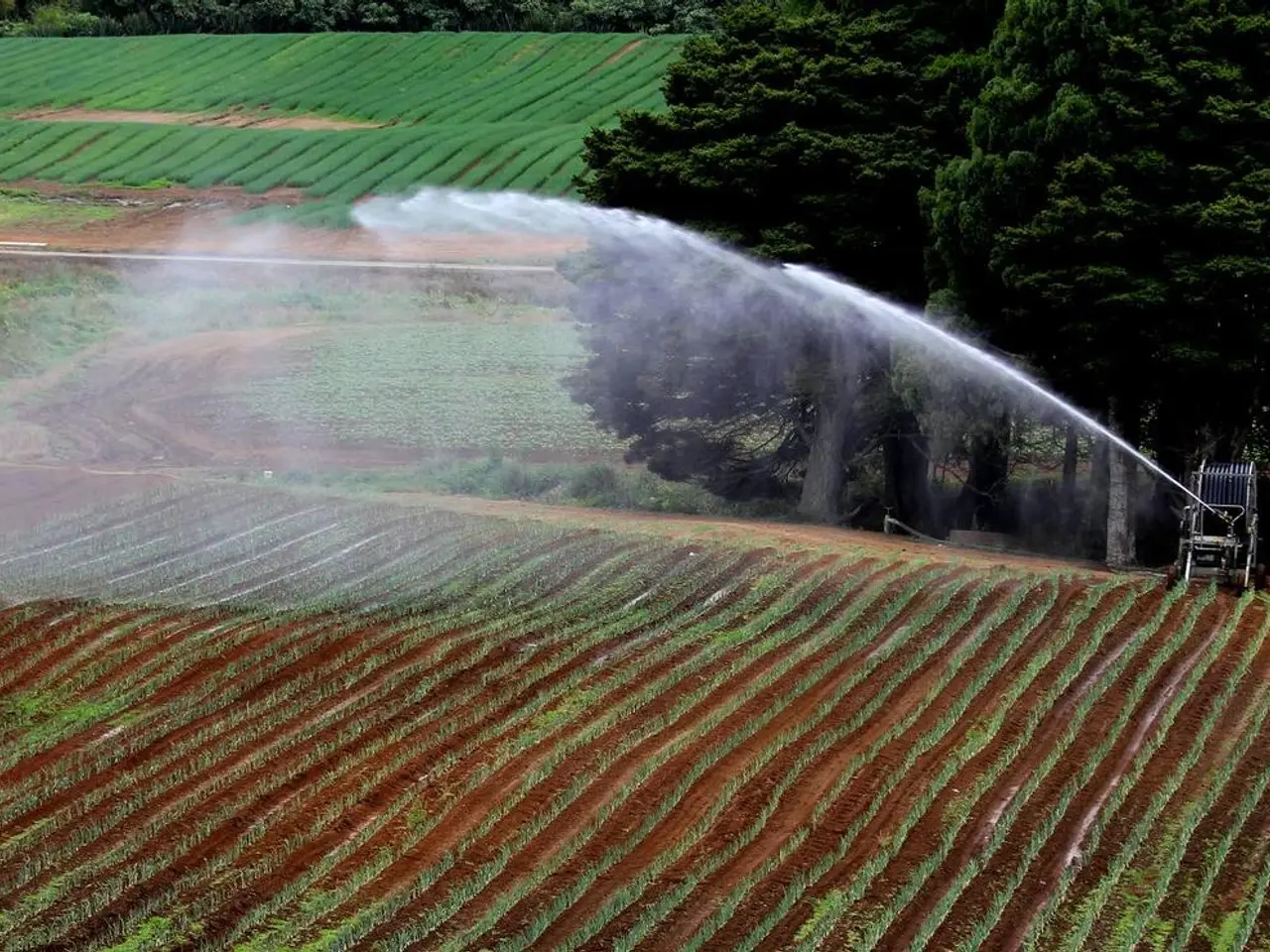Moroccan Agricultural Technology startup Sand to Green obtains a $50,000 grant to further advance their eco-friendly farming endeavors.
In a significant stride towards combating desertification and climate-induced food insecurity, Moroccan agrotechnology startup Sand to Green has secured a $50,000 grant at the DeepTech Summit 2025. This funding will accelerate the company's expansion efforts, focusing on transforming degraded land into fertile farmland, particularly in regions vulnerable to desertification.
Founded in 2021 by Benjamin Rombaut, Gautier de Carcouët, and Wissal Ben Moussa, Sand to Green combines environmental intelligence with local agricultural knowledge to create tailored agroecological systems. The company's innovative model integrates satellite-based land analysis, solar-powered desalination, and regenerative agroforestry to generate income by designing and managing sustainable farms that produce high-value crops.
The grant underscores the rising investor interest in the agriculture technology-as-a-service (AaaS) sector across Africa, with Sand to Green being one of the many startups capitalising on this trend. The company is supported by NextAfrica, a pan-African accelerator offering strategic guidance, mentorship, and investor connections. Additionally, Sand to Green has secured $1 million in seed funding from investors such as Norway's Katapult and the Catalyst Fund.
Morocco, with its strong investment in green technologies and renewable energy, provides a supportive environment for sustainability startups. The country's initiatives, like the White Dunes green hydrogen project, demonstrate its prioritization of green technologies and renewable energy. Sand to Green's expansion plans across Africa, the Middle East, and Southern Europe align with Morocco’s national agenda to restore degraded ecosystems.
The company is currently active in Morocco, particularly in the Tan-Tan region, and plans to expand further. Sand to Green's operations are rooted in regions facing challenges of climate resilience and food security. Each project is co-created with input from rural communities, farmers, and local institutions, ensuring sustainability and resilience in the long run.
Desertification in Africa results in an estimated 3% reduction in the continent's GDP annually due to soil and nutrient loss, causing economic losses of up to $6 trillion annually worldwide. African nations spend over $35 billion on food imports due to soil degradation. By focusing on restoring degraded land, Sand to Green aims to address these issues, promoting food security and economic growth in the regions it operates.
Other companies in the sector, such as South Africa's Aerobotics, have also garnered significant attention, raising a combined total of $26.8 million in funding. The success of Sand to Green and similar startups highlights the potential of technology-driven solutions to combat desertification and promote sustainable agriculture, contributing to a greener and more resilient future for Africa and beyond.
- In the realm of education and self-development, the success of Sand to Green, a Moroccan agrotechnology startup, highlights the importance of environmental science, showcasing how the integration of satellite-based land analysis, solar-powered desalination, and regenerative agroforestry can lead to innovative technology-driven solutions that address issues like desertification and promote sustainable agriculture.
- The rise in investor interest in the agriculture technology-as-a-service (AaaS) sector, as demonstrated by the $50,000 grant secured by Sand to Green, underscores the potential for technology to play a significant role in the environmental sciences, with a focus on environmental-science-based solutions that can combat desertification, promote food security, and drive economic growth in Africa and beyond.




